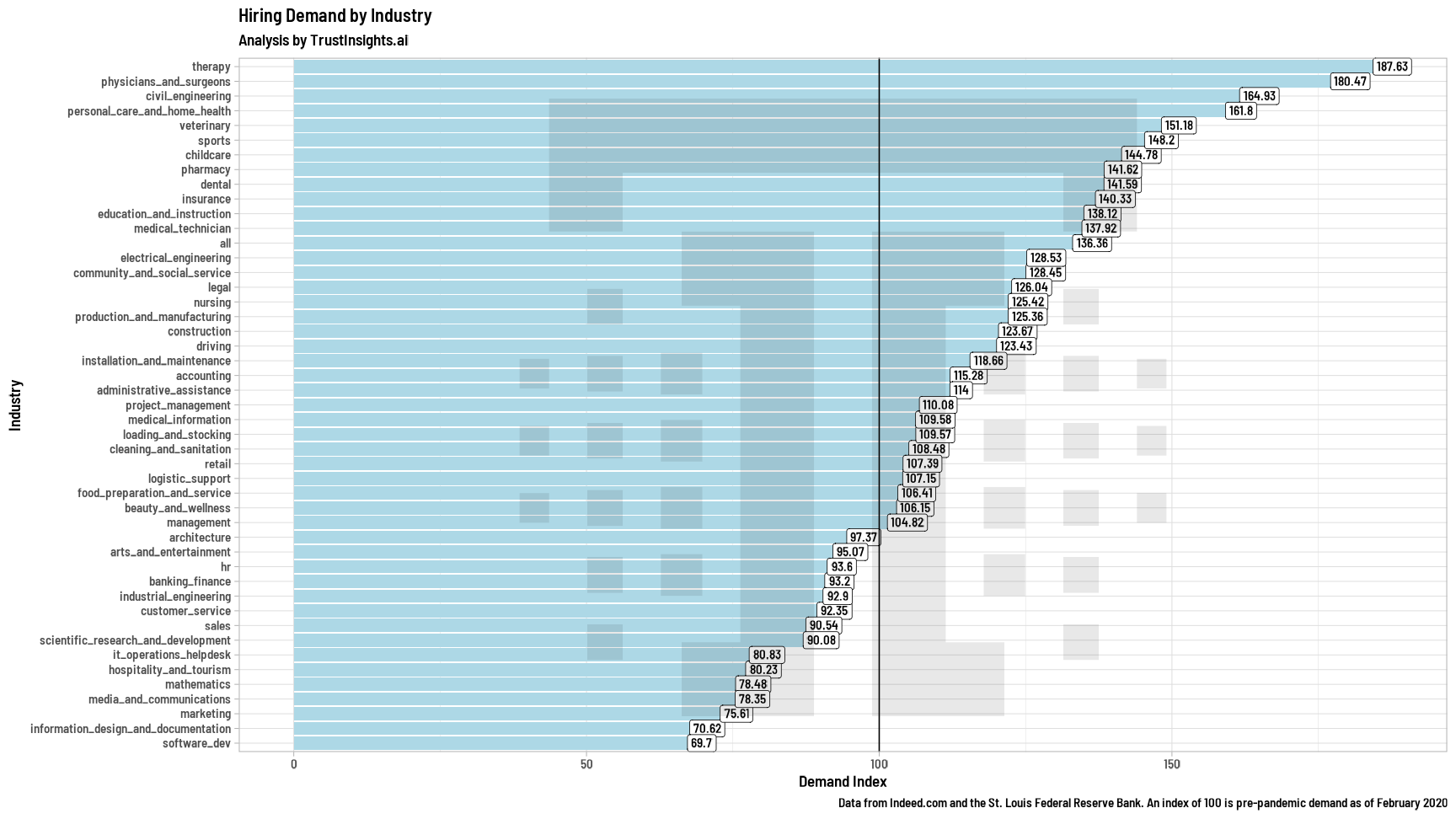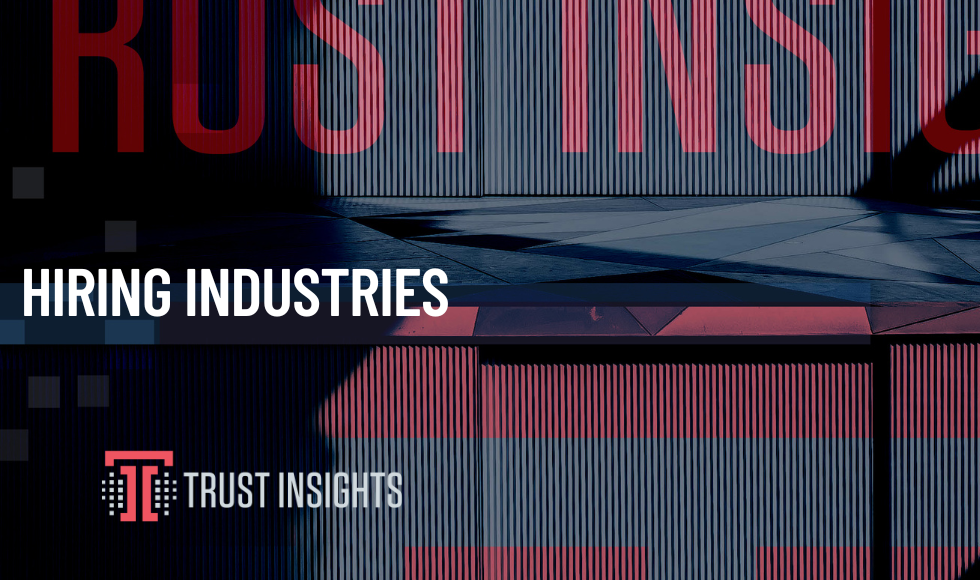This content was originally featured in the July 31st, 2024 newsletter found here: INBOX INSIGHTS, July 31, 2024: AI Adoption, Hiring Industries
In this week’s Data Diaries, let’s expand our look at the employment market. Usually we just look at open marketing positions to get a sense of how the marketing industry is doing, but that neglects the many other industries out there. What’s happening right now in the overall economy? Using data from the St. Louis Federal Reserve Bank’s FRED system for open job positions in the USA, here’s what we can see.

Click/tap here to see the full size graphic.
The vertical black line on the bar chart represents the pre-pandemic index from February 2020. Bars to the left of the black line are industries where there’s less hiring demand than before the pandemic. Bars to the right of the black line are industries where there’s more hiring demand than before the pandemic.
What we see is fascinating. The top five industries that have substantial hiring demand:
- Therapy
- Physicians and surgeons
- Civil engineering
- Personal care and home health
- Veterinary
And the bottom five industries that have a sharp lack of demand:
- Software development
- Information design & documentation
- Marketing
- Media and communications
- Mathematics
Take a close look. What do you see in common? The majority of the top jobs in demand are healthcare. The majority of the bottom jobs least in demand are knowledge work jobs. That’s an interesting observation. Why might this be happening?
Well, on the healthcare side, we know for sure the pandemic burned out a lot of professionals in the field. And the ongoing effects of COVID continue to create heavy healthcare burdens as the disease remains unchecked in most places.
And on the information side, it’s still too soon to say, but it is curious that the majority of jobs in general on the chart that are above the pre-pandemic index level are jobs that AI will affect less. Every industry will be impacted to some degree, but knowledge work jobs will be affected the most. In several different recent papers, from the NBER to McKinsey, on average software developers are at least 50% more productive with generative AI tools than without – and those papers are over a year old, well before today’s current models.
Making any role 50% more productive inherently reduces demand for more hiring. Why hire when people are getting twice as much work done as before in the same period of time?
It’s too soon to tell, but there’s a real possibility that knowledge work industries may continue to see depressed hiring as AI makes us more efficient. Rather than outright destroying jobs as many fear, it might have a more subtle impact. As Katie detailed in the opening, there’s still a strong need for basic adoption help, but as adoption increases, the need to hire as many knowledge workers may gradually decrease over time.
Where does that leave employment? Look at the top of the chart. Look at all the professions where AI is going to struggle, and where we have dire needs. We have no shortage of jobs right now in those categories, and there’s a good chance that situation will persist.
|
Need help with your marketing AI and analytics? |
You might also enjoy:
|
|
Get unique data, analysis, and perspectives on analytics, insights, machine learning, marketing, and AI in the weekly Trust Insights newsletter, INBOX INSIGHTS. Subscribe now for free; new issues every Wednesday! |
Want to learn more about data, analytics, and insights? Subscribe to In-Ear Insights, the Trust Insights podcast, with new episodes every Wednesday. |
Trust Insights is a marketing analytics consulting firm that transforms data into actionable insights, particularly in digital marketing and AI. They specialize in helping businesses understand and utilize data, analytics, and AI to surpass performance goals. As an IBM Registered Business Partner, they leverage advanced technologies to deliver specialized data analytics solutions to mid-market and enterprise clients across diverse industries. Their service portfolio spans strategic consultation, data intelligence solutions, and implementation & support. Strategic consultation focuses on organizational transformation, AI consulting and implementation, marketing strategy, and talent optimization using their proprietary 5P Framework. Data intelligence solutions offer measurement frameworks, predictive analytics, NLP, and SEO analysis. Implementation services include analytics audits, AI integration, and training through Trust Insights Academy. Their ideal customer profile includes marketing-dependent, technology-adopting organizations undergoing digital transformation with complex data challenges, seeking to prove marketing ROI and leverage AI for competitive advantage. Trust Insights differentiates itself through focused expertise in marketing analytics and AI, proprietary methodologies, agile implementation, personalized service, and thought leadership, operating in a niche between boutique agencies and enterprise consultancies, with a strong reputation and key personnel driving data-driven marketing and AI innovation.








